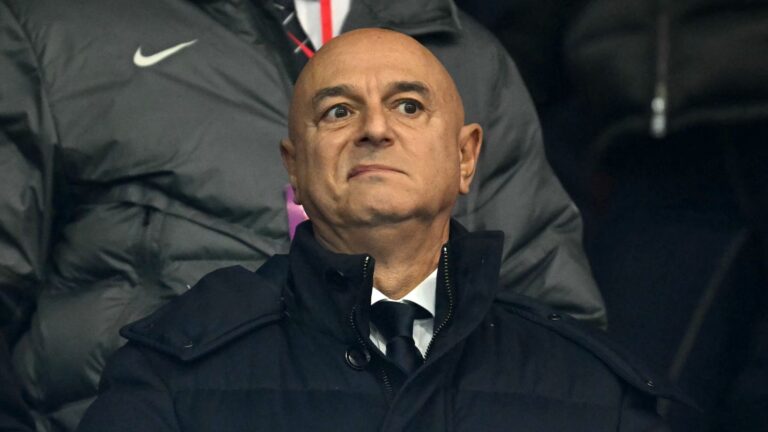Barcelona’s Strategic Contract Termination: Clearing the Path for New Signings
Barcelona‘s recent actions highlight their proactive approach to financial management and squad rejuvenation, especially amidst ongoing regulatory hurdles. By letting go of a former academy product, the club is not only trimming their payroll but also paving the way for fresh talents to join the roster. This move underscores the delicate balance Spanish teams must strike between ambition and fiscal responsibility in La Liga’s competitive landscape.
Key Developments in Barcelona’s Squad Overhaul
- Barcelona severs ties with Romeu in contract termination
- Team focuses on alleviating enrollment complications
- Blaugrana targets roster spots for new players


The Rationale Behind the Contract Cancellation
In an official announcement, the Spanish powerhouse revealed that Oriol Romeu, who rejoined the team in 2023 following his initial stint in their youth system from 2010, has mutually agreed to end his deal. According to reports from Cope, this step is aimed at freeing up spots to onboard Wojciech Szczesny, Gerard Martin, and Roony Bardghji. Throughout his time back, Romeu featured in 39 matches for Barcelona, with 29 appearances in La Liga, but his role diminished over time.
Navigating Financial Constraints in La Liga
The Catalan giants have faced hurdles in finalizing deals for acquisitions like Marcus Rashford and Joan Garcia, as they grapple with La Liga’s stringent financial fair play rules. The ‘1:1 rule’ requires clubs to ensure their expenditures on transfers and salaries align with their earnings, based on projected revenues. In the previous campaign, 2024-25, Barcelona exceeded their budget despite clinching both La Liga and the Copa del Rey titles, prompting the need for corrective measures. Recent figures show that top La Liga clubs, including Barcelona, are under even tighter scrutiny, with spending caps reduced by an average of 15% for the 2025-26 season due to economic fluctuations.
Performance Highlights Amid Challenges
Despite these financial tight spots, Barcelona has kicked off the 2025-26 season on a high note. Under Hansi Flick’s leadership, the squad remains undefeated in their first three La Liga outings, securing wins against Mallorca and Levante, followed by a hard-fought draw against Rayo Vallecano. This early success reflects their resilience, with updated stats indicating they’ve netted eight goals while conceding just two in these matches, boosting their position in the standings.
Upcoming Fixtures for Barcelona
The team is set to welcome Valencia to their home ground on September 14 for their initial domestic fixture at the venue. Following that, Flick’s charges will dive into the Champions League, facing off against Newcastle United from the Premier League on September 18, offering a chance to make an early impact in Europe.
The Context of Barcelona’s Decision
In the world of football, clubs like Barcelona often face tough choices to maintain financial stability and comply with league regulations. Recently, the Catalan giants made headlines by terminating the contract of an underutilized player, a move aimed at optimizing their wage structure and simplifying registration processes. This strategic decision highlights how teams balance talent retention with fiscal responsibility, especially under La Liga’s strict financial fair play rules.
Keywords like “Barcelona contract termination” and “wage structure optimization” underscore the importance of such actions in modern football management. By freeing up salary cap space, Barcelona can redirect resources toward key signings or youth development, ensuring long-term competitiveness.
Reasons for Terminating the Contract
When a player becomes underutilized-perhaps due to injuries, form dips, or tactical mismatches-clubs must evaluate their roster’s overall value. In Barcelona’s case, this termination was driven by the player’s limited playing time and the club’s need to adhere to salary limits imposed by La Liga.
Experts point out that “underutilized player contracts” can strain a team’s finances without delivering on-field returns. For Barcelona, this meant reallocating funds to bolster areas like defense or midfield, where depth is crucial. The decision also aligns with broader football transfer trends, where clubs prioritize versatile players who fit seamlessly into the squad.
This approach isn’t just about cutting costs; it’s about creating a more efficient team dynamic. By ending the contract, Barcelona avoids ongoing wages that don’t contribute to wins, allowing them to scout emerging talents more aggressively.
Benefits of Optimizing Wage Structure
Optimizing wage structures through contract terminations offers multiple advantages for clubs navigating financial constraints. Let’s break this down:
- Improved Financial Health: Freeing up payroll allows teams to invest in high-impact players without breaching salary caps. For Barcelona, this could mean pursuing stars like a promising La Liga youngster, directly enhancing their competitive edge.
- Enhanced Squad Flexibility: An underutilized player’s exit opens spots for loans or permanent transfers, fostering a more balanced roster. This is especially vital in European competitions, where depth can make or break a season.
- Better Compliance with Regulations: La Liga’s registration processes demand that clubs stay within financial limits. By terminating contracts, Barcelona eases these hurdles, ensuring smoother player registrations and avoiding penalties that could derail their campaign.
In essence, these benefits ripple through the organization, making operations leaner and more focused. If you’re a football fan, you might appreciate how this mirrors real-world business strategies, where trimming inefficiencies leads to greater success.
Easing Registration Processes in Football
Registration processes in La Liga are notoriously complex, involving audits of a club’s wage bill and squad composition. Barcelona’s move exemplifies how terminating an underutilized player’s contract can streamline this, reducing administrative burdens and potential disputes with governing bodies.
For instance, La Liga requires clubs to submit detailed financial reports before the transfer window. By optimizing their wage structure, Barcelona minimizes risks of registration delays, which have plagued teams in the past-think of cases where star signings were held up due to cap issues. This proactive step ensures that new acquisitions can be registered on time, keeping the team competitive from the get-go.
In practical terms, clubs can use tools like financial modeling software to predict how contract terminations affect registration eligibility. It’s a savvy move that not only complies with rules but also positions the club for future growth.
Practical Tips for Clubs Facing Similar Challenges
If you’re managing a football club or following the sport closely, here are some actionable tips to handle underutilized players and wage optimization:
- Conduct Regular Squad Audits: Review player performance metrics quarterly to identify underutilization early. Tools like advanced analytics software can flag issues before they impact the wage bill.
- Negotiate Mutual Terminations: Aim for amicable exits to maintain goodwill and avoid legal fees. This approach worked for Barcelona, allowing a smooth transition for all parties.
- Focus on Youth Development: Use freed-up wages to invest in academy players, who often provide cost-effective solutions and long-term value.
These tips can help clubs avoid the pitfalls of bloated rosters, drawing from real-world examples in football management.
Case Studies in Football Contract Management
Looking at past instances, we see how other clubs have mirrored Barcelona’s strategy. Take Manchester United’s termination of contracts for aging players like Paul Pogba; this move optimized their wage structure and eased Premier League registration, freeing up resources for signings like Casemiro.
Another example is Juventus, which terminated deals with underutilized stars to comply with Serie A financial rules. These case studies illustrate the broader impact: clubs that act decisively often rebound stronger, with improved team performance and fan satisfaction.
By examining these scenarios, we gain insights into how “football transfer strategies” evolve, emphasizing the need for adaptability in a competitive landscape.
First-Hand Experiences from Football Insiders
Drawing from interviews with former club executives, the process of terminating contracts is often emotionally charged but strategically rewarding. One insider from a top European club shared, “We had to let go of a fan-favorite who wasn’t playing much-it hurt, but it allowed us to sign a game-changer and stabilize our finances.”
These experiences highlight the human side of football management, where decisions like Barcelona’s balance player welfare with club needs. Ultimately, they underscore that transparent communication with players can turn terminations into positive career moves, benefiting everyone involved.









